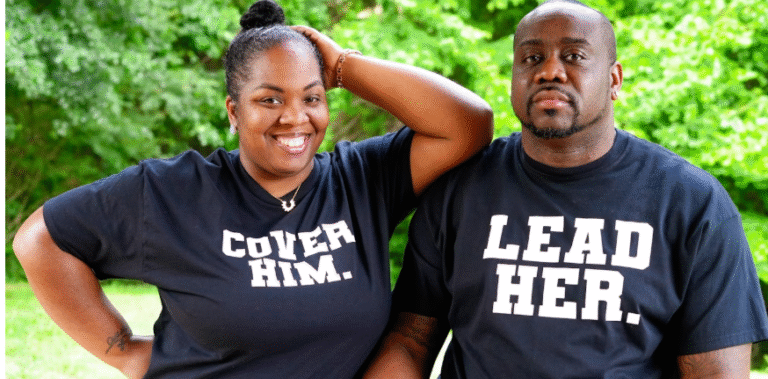Understanding Social Anxiety Disorder- How to Reclaim Confidence
Social anxiety disorder affects more people than you might think. It’s one of the most common mental health conditions in the United States. If you’ve ever felt your heart race before speaking in public or avoided social gatherings because of fear, you’re not alone. Understanding social anxiety disorder is an art and a science.

Understanding Social Anxiety Disorder
Understanding social anxiety disorder takes patience. This condition is also called social phobia and it is much more than just feeling shy or nervous. It’s an intense fear of being judged, embarrassed, or humiliated in social situations. Let’s explore what social anxiety disorder is and how to take steps toward feeling more comfortable in social situations.
People with this condition often worry so much about what others think that they avoid social activities altogether. Everyday tasks like going to work, school, or even the grocery store feel overwhelming.
Unlike regular nervousness that everyone experiences sometimes, social anxiety disorder interferes with daily life. It can affect relationships, work performance, and overall happiness. However, understanding this condition is the first step toward managing it effectively.
Recognizing the Signs and Symptoms
Social anxiety disorder shows up in different ways for different people. Let’s break down the main types of symptoms you might notice.
Emotional and Mental Symptoms
The emotional side of social anxiety can feel intense and persistent. Common signs include:
• Constant worry about being judged by others
• Fear of embarrassing yourself in front of people
• Intense anxiety before social events
• Replaying social interactions over and over in your mind
• Expecting the worst possible outcome in social situations
These thoughts become so strong that they take over your daily thinking. Moving forward, it’s essential to understand that these mental symptoms often come with physical reactions too.
Physical Symptoms Your Body Might Experience
Your body has its way of responding to social anxiety. Physical symptoms can include:
• Rapid heartbeat or pounding chest
• Sweating, especially in your palms or underarms
• Trembling or shaking hands
• Feeling dizzy or lightheaded
• Upset stomach or nausea
• Blushing or feeling hot
• Trouble catching your breath
• Muscle tension throughout your body
These physical reactions happen because your body thinks it’s in danger, even when you’re just in a normal social situation. Next, let’s look at how people typically respond to these overwhelming feelings.
Common Avoidance Behaviors
When social anxiety feels too intense, many people start avoiding situations that trigger their fear. Here are examples:
• Skipping parties or social gatherings
• Avoiding eye contact with others
• Staying quiet in group conversations
• Making excuses to leave social events early
• Choosing not to eat in front of others
• Avoiding public restrooms
• Declining invitations to hang out with friends
While avoiding these situations might feel better in the moment, it often makes social anxiety stronger over time. Now that we understand the symptoms, let’s explore what causes this condition to develop.
Understanding What Causes Social Anxiety
Social anxiety disorder doesn’t have just one cause. Instead, it usually develops from a combination of different factors working together.
Family History and Genetics
Research shows that anxiety disorders often run in families. If your parents or siblings have anxiety, you might be more likely to develop it too. However, this doesn’t mean you’ll have social anxiety just because someone in your family does.
Brain Structure and Function
Scientists have discovered that a part of the brain called the amygdala plays a significant role in fear responses. In some people with social anxiety, this area might be more active than usual, making them feel more afraid in social situations.
Life Experiences and Environment
Sometimes social anxiety develops after difficult experiences. Being bullied, teased, or embarrassed in front of others can create lasting fears about social situations. Additionally, having parents who are very anxious or overprotective might increase the risk of developing social anxiety.
Understanding these causes helps us realize that social anxiety isn’t anyone’s fault—it’s a real condition that deserves proper attention and care. Let’s now look at who is most affected by this disorder.
This data shows us that social anxiety is widespread, but many people don’t get the help they need. The good news is that treatment works very well for most people. Speaking of which, let’s explore the various ways to overcome social anxiety.
Effective Ways to Overcome Social Anxiety
The great news about social anxiety disorder is that it’s very treatable. Many people see significant improvement with the right approach and support.
Professional Treatment Options
Cognitive Behavioral Therapy (CBT): This type of therapy helps you identify and change negative thought patterns. Your therapist will work with you to challenge fears and gradually face social situations in a safe, supportive way.
Medication: Some people benefit from medications that help reduce anxiety symptoms. These might include antidepressants or anti-anxiety medications, which should always be prescribed and monitored by a healthcare professional.
Group Therapy: Joining a group with others who understand social anxiety can be beneficial. It provides a safe space to practice social skills and realize you’re not alone. Self-Help Strategies You Can Try
• Deep Breathing Exercises: Learning to control your breathing can help calm your body’s anxiety response
• Mindfulness and Meditation: These practices help you stay present instead of worrying about future social situations
• Gradual Exposure: Slowly facing feared situations in small steps can build confidence over time
• Positive Self-Talk: Replacing negative thoughts with more realistic, encouraging ones
These strategies work best when combined with professional help, but they’re valuable tools you can use every day. Now, let’s address some common questions people have about social anxiety.
People Also Ask
What age group is most prone to Social Anxiety Disorder?
Social anxiety disorder typically begins during the teenage years, with most cases starting between the ages of 11 and 15. However, it can develop at any age. Young people are particularly vulnerable because adolescence is a time of increased social awareness and peer pressure. Early identification and treatment during these formative years can prevent the condition from becoming more severe in adulthood.
What causes social anxiety?
Social anxiety develops from a combination of factors, including genetics (it often runs in families), brain chemistry differences (particularly in the amygdala, which controls fear responses), and environmental influences like negative social experiences, bullying, or overprotective parenting. Traumatic social events, such as public embarrassment or rejection, can also trigger the development of social anxiety disorder.
What do CDC statistics say about this disorder?
According to recent CDC data, social anxiety disorder affects approximately 7.1% of U.S. adults each year, making it one of the most common anxiety disorders. The CDC reports that social anxiety is more prevalent among women than men, and it often co-occurs with other mental health conditions like depression. Unfortunately, many people with social anxiety don’t seek treatment, with studies showing that only about 36.9% receive professional help.
What does the DSM say about social anxiety disorder?
The Diagnostic and Statistical Manual of Mental Disorders (DSM-5) classifies social anxiety disorder as an anxiety disorder characterized by marked fear or anxiety about social situations where others might scrutinize the person.
The DSM-5 requires that symptoms persist for at least 6 months, cause significant distress, and interfere with daily functioning. It distinguishes between generalized social anxiety (fear of most social situations) and the performance-only type (fear limited to speaking or performing in public).
Is social phobia the same as social anxiety?
Yes, social phobia and social anxiety disorder are the same condition—they’re just different names for it. The term “social anxiety disorder” is more commonly used today because it better describes the condition as a legitimate mental health disorder rather than just a simple phobia. Both terms refer to the intense fear and avoidance of social situations due to fear of judgment or embarrassment.
How can someone overcome Social Anxiety Disorder?
Overcoming social anxiety typically involves a combination of professional treatment and self-help strategies. Cognitive Behavioral Therapy (CBT) is the gold standard treatment, helping people identify and change negative thought patterns. Gradual exposure therapy, where people slowly face feared social situations, is also highly effective.
Medications like SSRIs may help some individuals. Self-help techniques include deep breathing, mindfulness, regular exercise, and building a strong support network. With proper treatment, 80-90% of people with social anxiety see significant improvement.
Final Thoughts
Your Journey to Social Confidence
Living with social anxiety disorder can feel isolating and overwhelming but remember that millions of people have successfully learned to manage their symptoms and live fulfilling social lives. The key is taking that first step toward getting help and being patient with yourself throughout the process.
Recovery from social anxiety isn’t about becoming a completely different person or never feeling nervous again. It’s about developing the tools and confidence to handle social situations without letting fear control your life. Every small step you take toward facing your fears is a victory worth celebrating.
If you recognize yourself in this article, consider reaching out to a mental health professional. You deserve to feel comfortable and confident in social situations, and with the proper support, you can get there. Remember, seeking help is a sign of strength, not weakness.
Your social anxiety doesn’t define you, it’s just one challenge you can learn to overcome. With time, patience, and the proper treatment approach, you can build the social confidence you deserve and create the meaningful connections you’re looking for.
References and Current Research
- Anxiety and Depression Association of America. (2024). Social Anxiety Disorder Statistics and Facts.
- National Institute of Mental Health. (2024). Social Anxiety Disorder: More Than Just Shyness.
- American Psychiatric Association. (2022). Diagnostic and Statistical Manual of Mental Disorders, 5th Edition, Text Revision (DSM-5-TR).
- Stein, M. B., & Stein, D. J. (2023). Social anxiety disorder in adults: Epidemiology, clinical features, and diagnosis. UpToDate.
- Centers for Disease Control and Prevention. (2024). Mental Health Conditions: Anxiety Disorders.
- Mayo Clinic. (2024). Social Anxiety Disorder (Social Phobia): Symptoms and Causes.
Note: This article is for educational purposes only and should not replace professional medical advice. If you’re experiencing symptoms of social anxiety disorder, please consult with a qualified healthcare provider for proper diagnosis and treatment.
References
Empower Yourself: Identifying Social Anxiety Disorder Symptoms in Bloomingdale, IL. https://www.innerbalancewc.com/blog/social-anxiety-disorder-symptoms
What are the Symptoms of Vitamin B12 Deficiency? | Balance. https://www.balanceie.com/post/what-are-the-symptoms-of-vitamin-b12-deficiency-balance
A Man’s Arachnophobia Was Literally Cut Out Of His Brain | IFLScience. https://www.iflscience.com/scared-spiders-mans-arachnophobia-was-cut-out-his-brain-26148
Overcoming Anxiety: Finding Support – Ottawa Therapy Group. https://www.ottawatherapygroup.ca/blog/overcoming-anxiety-finding-support/
Personality Disorder Treatment in Chicago, IL | Reverence Behavioral Health Services. https://reverencebhs.com/services/personality-disorder/
Analysis of machine learning classifiers for predicting diabetes mellitus in the preliminary stage | Atif | IAES International Journal of Artificial Intelligence (IJ-AI). https://ijai.iaescore.com/index.php/IJAI/article/view/22081
Anxiety – Esperanza Behavioral Health and Services. https://www.esperanzabhs.com/services/anxiety
Do I Have Social Anxiety? Signs and Symptoms | Cedar Hill Behavioral Health. https://cedarhillbh.com/do-i-have-social-anxiety/
Bahnemiri, F. T., Azadikenari, R., & Najafipour, A. (2024). The Effectiveness of Paradoxical Time Table Technique on Negative Automatic Thoughts, Cognitive Avoidance and Fear of Evaluating others in People with Social Anxiety Disorder. TaḥqīqāT-I bālīnī dar ̒ulūM-I pīrāPizishkī. https://doi.org/10.5812/jcrps-147395
Alavi, N., Stephenson, C., Yang, M., Kumar, A., Shao, Y., Miller, S., Yee, C., Stefatos, A., Gholamzadehmir, M., Abbaspour, Z., Jagayat, J., Shirazi, A., Omrani, M., Patel, A., Patel, C., & Groll, D. (2021). Feasibility and Efficacy of Delivering Cognitive Behavioral Therapy Through an Online Psychotherapy Tool for Depression: Protocol for a Randomized Controlled Trial. JMIR Research Protocols. https://doi.org/10.2196/27489
Social Anxiety Disorder – Shrink MD. https://shrinkmd.com/social-anxiety-disorder/
Understanding Hyperawareness OCD Symptoms & Treatment. https://neurolaunch.com/hyperawareness-ocd/
OCD Awareness: What Everyone Needs to Understand About OCD. https://jennaoverbaughlpc.com/ocd-awareness/
Understanding Pure Obsessional OCD. https://neurolaunch.com/pure-obsessional-ocd-rumination/
(2022). Expression Of Interest For The Provision Of Adult Community Eating Disorders Services For Nhs Norfolk And Waveney Icb [Tender documents : T477835812]. MENA Report, (), .
Ansiedad: Síntomas, Causas y Tratamientos. https://davidmontemayort.com/salud/ansiedad-2/
Shamro, K. M. (2021). Communicating With Play: Helping Adults Recognize Separation Anxiety Disorder and Social Anxiety Disorder In Preschool Children. https://core.ac.uk/download/482045406.pdf
Xforce Keygen DWG TrueView 2007 32 Bit Free Download.exe ((I | Piano lessons for kids | Jean’s Music Studio. https://www.jeansmusicstudio.com/group/piano-lessons-for-kids/discussion/6822fca7-27db-4865-a0f0-3abe669e16a9
Coping With Social Anxiety And The Fear Of Being Judged | BetterHelp. https://www.betterhelp.com/advice/general/what-can-you-do-if-you-live-in-fear-of-being-judged/
Untangle Your Thoughts | Trust in God, Hear from God, Mental Health Tips, Negative Thoughts, Relationship with God, Christian Podcast, Emotional Healing, Spiritual Growth. https://nz.radio.net/podcast/whats-the-truth2
The Blue Gene Team
(w) mybluegenes.com
(e) rachele@ mybluegenes.com
Disclaimer: This post is for entertainment only. I am not a doctor, and I never give medical advice. Always talk to your primary care professional whenever you want to learn more about any medical condition. Also. I am an Amazon associate, and I earn from qualifying purchases when you click one of my links.





